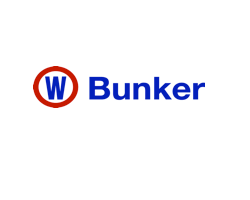OW BUNKER Says Outsourcing Model Is Natural Evolution For Fuel Supply
Outsourced relationships with ship owners/operators can drive further efficiencies within operations
OW Bunker, one of the world’s leading suppliers and traders of marine fuel, today stated that outsourcing fuel procurement is a natural evolution within the shipping industry as ship owners and operators look to maximise efficiencies and reduce costs within their operations.
Speaking at the Bunkerworld 2011 Conference in Athens, Lars Henrik Hejlesen, Sales Development Manager, OW Bunker, said:
“As ship owners and operators face increasing pressures to improve efficiencies and performance within their own operations, while at the same time reducing costs, the importance of being able to focus on their core business has never been more critical.”
“Although fuel oil is not core to ship owners’/operators’ end service it still represents over 50% of a vessel’s operating costs. Combined with the volatile oil prices and regulatory pressures, as well as the complexities in managing the transition from heavy to clean fuel it makes sense to outsource this responsibility to experts in fuel supply. While clearly the spot market will still account for a large proportion of the industry, the benefits and added value of working to an outsourced contract are significant.”
While outsourcing has been successfully adopted by many land-based industries, to date it has not been widely trialled within the shipping industry. The basic principle is to outsource non-core elements of a company’s operations, so that they can focus on the key day-to-day aspects of their business. The focus is on improving service to their customers, while also increasing operational efficiencies and reducing costs. OW Bunker believes that the complexities within the fuel supply chain in the post-recessionary economy, in conjunction with increased environmental regulation makes fuel supply perfect for outsourcing.
Hejlesen continues:
“Developing a comprehensive fuel procurement strategy that effectively manages volatile oil prices and incorporates the right type of fuel to meet environmental regulations is becoming more challenging. Fuel suppliers should have the knowledge and insight of the changing dynamics of the industry, coupled with a deep understanding of their customer’s operations and business strategy to manage this. By embracing an outsourcing model, customers will also benefit from ongoing counsel on how to adapt to the market transition from future fuel choices to technical advice that ensures safe switching from heavy to low sulphur products that does not impact engine and vessel performance.”
OW Bunker also believes that central to a successful outsourcing partnership is the strength of the relationship between the supplier and ship owner/operator.
Hejlesen concludes:
“There needs to be a trusted partnership with the customer that is based on improving their performance and profitability. It is the responsibility of the fuel provider to build this and demonstrate their capabilities and competence in effectively becoming the customer’s in-house procurement department. OW Bunker already has a number of outsourced relationships with customers, so we have first hand experience of knowing how it works and the tangible benefits an outsourced model can provide.”
Source: OW Bunker








